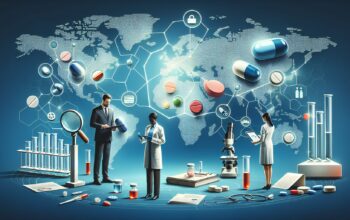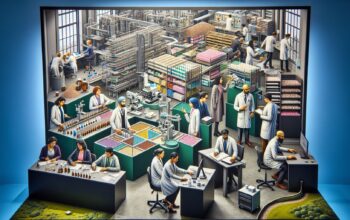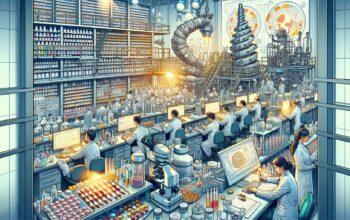
Have you ever wondered how medicines are discovered, developed, and made available to millions of people worldwide? The pharmaceutical industry plays a crucial role in researching, producing, and distributing drugs that save lives and improve our well-being. In this blog post, we will delve into the fascinating world of medicines and the pharmaceutical industry.
Introduction: The Importance of Medicines
Medicines are substances or compounds that have therapeutic effects on the body and are used for the prevention, treatment, or cure of diseases. They come in various forms, including tablets, capsules, injections, creams, and ointments, to cater to the diverse needs of patients. Medicines have revolutionized healthcare, enabling the management of chronic conditions, combating infectious diseases, and alleviating pain and suffering.
The Research and Development Process
Before a medicine reaches the shelves of your local pharmacy, extensive research and development efforts take place. It all begins with the identification of a medical need or a potential target where a new drug could make a difference. Researchers then embark on the journey of discovery by examining thousands to millions of molecules, hoping to find one that demonstrates the desired therapeutic effects.
Once a promising molecule, called a lead compound, is discovered, it undergoes rigorous testing in laboratories and animal models to evaluate its safety, effectiveness, and potential side effects. This preclinical stage allows scientists to gather crucial data to support the decision-making process for further development.
Clinical Trials and Regulatory Approval
If a lead compound successfully passes the preclinical stage, it moves forward to clinical trials, which involve testing the medicine on human volunteers. Clinical trials have several phases, with each phase testing the product on an increasing number of participants to evaluate its safety, dosage, and efficacy.
The data collected from clinical trials are submitted to regulatory authorities, such as the Food and Drug Administration (FDA) in the United States, for review. Regulators examine the scientific evidence to determine if the medicine’s benefits outweigh its risks, taking into account aspects like efficacy, safety, and quality. If the regulatory authority approves the medicine, it can then be manufactured, marketed, and prescribed to patients.
Manufacturing and Quality Control
The manufacturing process of medicines is highly regulated and requires adherence to strict quality control measures. Pharmaceutical companies carefully follow Good Manufacturing Practices (GMP) to ensure that high-quality products are consistently produced. GMP encompasses every aspect of manufacturing, from personnel training to facility cleanliness and rigorous testing of materials and finished products.
Stringent quality control is crucial to confirm that each batch of medicine meets the highest standards of safety, efficacy, and purity. Failure to comply with GMP can have severe consequences, including recalls, fines, and damage to a company’s reputation.
Conclusion: Transforming Lives through Medicines
The pharmaceutical world is a complex, multifaceted, and highly regulated sphere. It involves tireless research and development efforts, rigorous testing, and strict quality control to bring life-saving medicines to patients around the globe. The ongoing progress in pharmaceuticals continues to revolutionize healthcare, allowing us to live healthier, longer lives and combat the most challenging diseases.
Next time you reach for your medicine cabinet, take a moment to appreciate the journey your medicine has gone through, from the initial discovery in a laboratory to the shelves of your local pharmacy. The power of medicines and the pharmaceutical industry is indeed profound, as they have the ability to transform lives and shape the future of healthcare.


